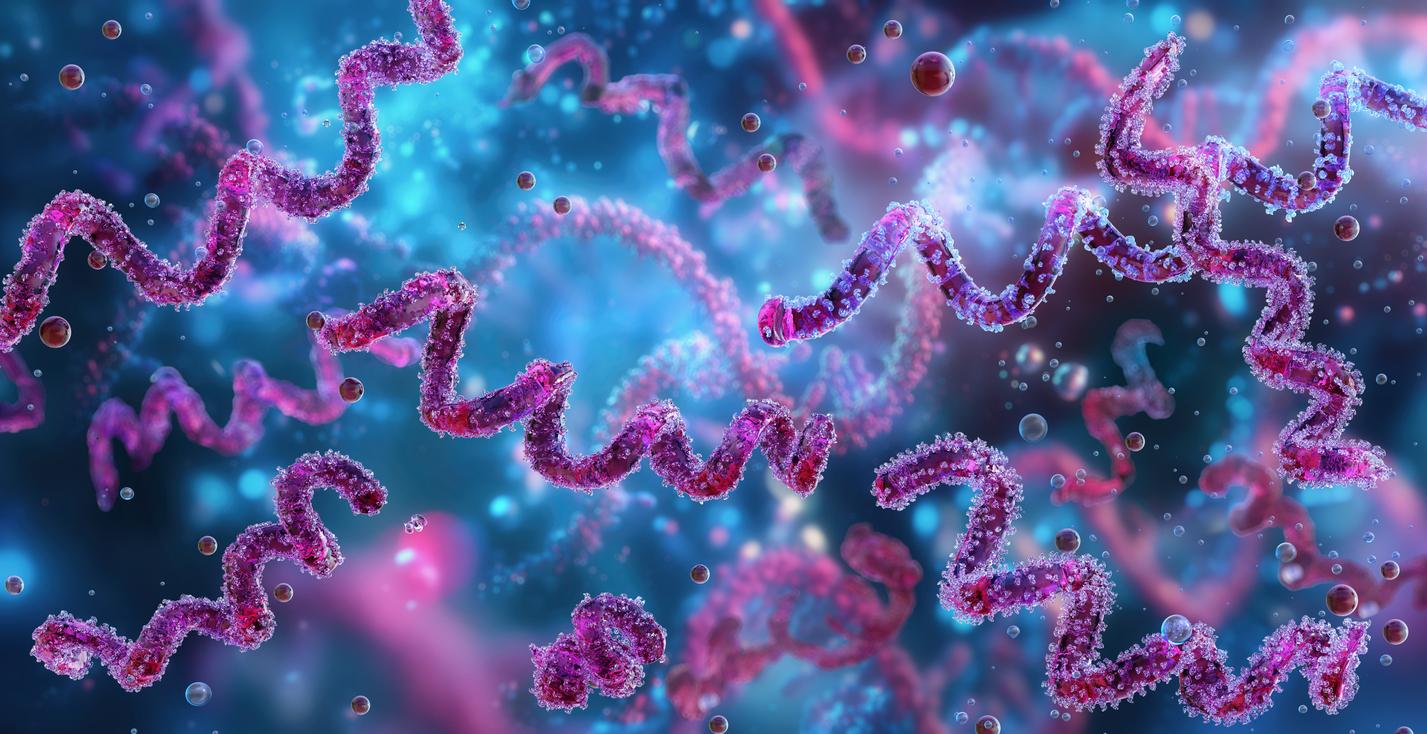The results of randomized clinical trial show that a single shot of the antibiotic benzathine penicillin G (BPG) is as effective in treating early syphilis as the three-injection regimen used in many patients, researchers reported today in the New England Journal of Medicine.
The findings come at a time when the United States and other countries around the world have been experiencing shortages of BPG, which has been the standard treatment for early syphilis since the early 1950s. Syphilis, caused by the bacterium Treponema pallidum, is one of the most common sexually transmitted infections, with an estimated 209,000 US infections in 2023. Though US syphilis incidence slowed in 2023, cases have risen by 61% since 2019, and shortages of BPG have hampered treatment.
The authors of the study, which was led by researchers at the University of Alabama at Birmingham (UAB) and funded by the National Institute of Allergy and Infectious Diseases (NIAID), part of the National Institutes of Health (NIH), say the findings could boost syphilis control, aid antibiotic stewardship efforts, and simplify treatment for syphilis patients.
"Benzathine penicillin G is highly effective against syphilis, but the three-dose regimen can be burdensome and deter people from attending follow-up visits with their healthcare providers," Carolyn Deal, PhD, chief of the enteric and sexually transmitted infections branch of NIAID, said in an NIH press release. "The new findings offer welcome evidence for potentially simplifying treatment with an equally effective one-dose regimen, particularly while syphilis rates remain alarmingly high."
'No observable benefit' to multiple doses
For the multicenter trial, investigators enrolled and assigned participants with early syphilis (which includes the primary, secondary, and early latent stages of the disease), with or without HIV, to receive an intramuscular injection of BPG in a one-time dose of 2.4 million units or a series of three 2.4-million-unit injections at weekly intervals. The primary end point was serologic response at 6 months, with a noninferiority margin of 10 percentage points.
The authors note that although a single dose of BPG has been the accepted regimen for early syphilis since it was introduced, there has long been concern that one dose may not be enough for people with HIV who have early syphilis.
"Despite recommendations from the Centers for Disease Control and Prevention [CDC] for single-dose benzathine penicillin G therapy, many clinicians treat persons who have HIV infection with multiple doses," they wrote.
A total of 249 participants (97% men, 62% Black, 61% living with HIV) were enrolled in the trial from October 31, 2018, through March 2, 2022, with 124 in the single-dose group and 125 in the three-dose group. Of the participants, 19% had primary syphilis, 47% had secondary syphilis, and 33% had early latent syphilis. Fifty participants were excluded from the final analysis.
The new findings offer welcome evidence for potentially simplifying treatment with an equally effective one-dose regimen, particularly while syphilis rates remain alarmingly high.
The percentage of participants with serologic response at 6 months was 76% (95% confidence interval [CI], 68% to 82%) in the single-dose group and 70% (95% CI, 61% to 77%) in the three-dose group, for a between-group difference of –6 percentage points (90% CI, -15 to 3), indicating noninferiority. When the treatment groups were further stratified according to HIV infection, the results were similar, with serologic response observed in 76% of participants with HIV infection in the one-dose group and 71% of participants with HIV in the three-dose group.
The most common adverse events were local injection-site pain and tenderness, observed in 76% of participants in the single-dose group and 85% in the three-dose group. The authors note that the cumulative discomfort from three shots may have been a factor in why 21 participants in the three-dose group did not receive all three treatments, though participants' reasons for not receiving all treatments weren't consistently recorded.
"With no observable benefit to multiple treatments, a single treatment at a dose of 2.4 million units should be, in our opinion, the preferred treatment for early syphilis," they wrote.
Findings should provide reassurance
"We hope these promising results will be complemented by scientific advances in syphilis prevention and diagnosis," lead investigator Edward Hook, MD, an emeritus professor of medicine and epidemiology at UAB, said in the release.
In an editorial on the study in the same journal, CDC scientists Lindley Barbee, MD, MPH, and Laura Bachmann, MD, MPH, wrote, "The findings from this trial should provide reassurance to clinicians, particularly those caring for patients with HIV infection, that a single dose of benzathine penicillin G is sufficient to treat early syphilis."
"The question remains whether persons with late latent syphilis or syphilis of unknown duration should receive the CDC-recommended regimen of three 2.4-million–unit doses of benzathine penicillin G. The data supporting the CDC recommendation are theoretical."






















